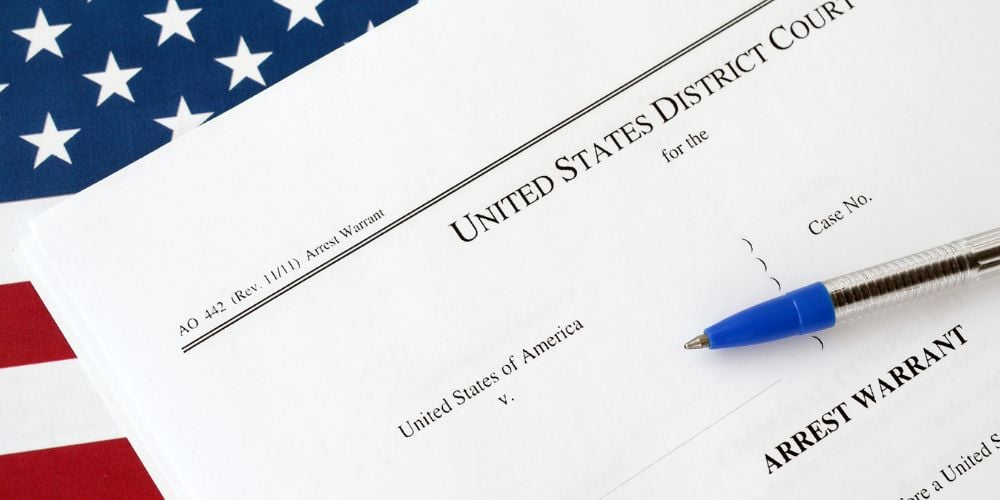Flying with a warrant can be a daunting and confusing situation.
Whether you have an open arrest warrant or are traveling with a warrant for a pending case, it is essential to understand the limitations and risks involved. So, can you fly with an open arrest warrant?
In this article, we will explore the legality of air travel with a warrant, both domestically and internationally, provide insights from legal experts, and offer valuable tips to navigate this challenging situation.
Can You Fly with an Open Arrest Warrant?
Having an open arrest warrant can significantly impact your ability to travel freely. The presence of law enforcement at airports and the involvement of the Transportation Security Administration (TSA) pose potential risks and limitations.
Limitations and Risks
Airports, especially those with federal law enforcement offices, often have a local police presence. Depending on the severity of your warrant and the jurisdiction you are traveling through, you might be detained upon arrival or departure.
It is important to note that airports employ various security measures, including scanning passengers for outstanding warrants.

TSA Involvement and Potential Consequences
The TSA is primarily responsible for ensuring the safety of air travel. Although they focus on screening passengers for weapons and explosives, there are instances where they might encounter travelers with active warrants.
If your name surfaces during security checks or matches a wanted list, airport authorities have the discretion to take appropriate action. This may involve notifying local law enforcement or detaining you until the arrival of officials.
Domestic Travel with a Warrant
When it comes to domestic travel within the United States, the severity of your warrant plays a significant role in determining the consequences.
While TSA agents primarily focus on identifying potential threats to air travel safety, they may be alerted to active warrants by law enforcement or during background checks.
TSA Policies and Procedures
TSA agents are not tasked with actively searching for individuals with warrants, but their primary goal is to keep air travel safe. If, during the screening process, your warrant is discovered, local law enforcement may be notified.
The subsequent actions will depend on the severity of the warrant, the specific airport, and the law enforcement agency’s policies.
Insights from Legal Experts
It is crucial to seek legal counsel if you have an open arrest warrant and need to travel domestically. Consulting with an attorney will help you understand the potential risks and legal implications, allowing you to make informed decisions.
Legal experts can help navigate any travel limitations based on the degree of the warrant and jurisdiction-specific considerations.
International Travel with a Warrant
International travel is subject to additional complexities, as each country has its own immigration and law enforcement policies. The ability to travel with a warrant can vary significantly from one destination to another.
Travel Restrictions and Variations by Destination
Before traveling internationally with a warrant, it is essential to research the specific travel restrictions of your intended destination.
Some countries may deny entry or impose legal consequences upon discovering an outstanding warrant. To avoid legal troubles, it is strongly recommended to resolve your warrant before attempting international travel.
Considerations for Border Control and Customs
When passing through border control and customs, officers may conduct more comprehensive background checks than the TSA.
This increases the likelihood of your warrant being discovered. It is crucial to recognize that border control officers possess the authority to deny entry or take other appropriate actions based on the severity of your warrant.
Travel Tips and Best Practices
To navigate air travel with a warrant, consider the following tips and best practices:
Clearing Warrants Before Travel
Resolving your warrant before traveling can minimize legal complications. Contacting the relevant authorities or seeking legal assistance is advisable to understand the steps required for resolving your warrant.
Legal Consultation and Guidance
Seek advice from an attorney familiar with criminal law and travel restrictions. They can provide personalized guidance based on your specific situation and jurisdiction.

Frequently Asked Questions
Can you fly with a misdemeanor warrant?
The severity of your warrant, travel destination, and airline policies influence whether you can fly with a misdemeanor warrant. Consult legal experts to understand the potential risks and limitations associated with your specific situation.
Can you fly with a warrant in the United States?
Flying with a warrant within the United States poses risks of local law enforcement intervention. TSA agents are focused on security screenings but may become aware of active warrants during checks. The specific actions taken will depend on various factors and the discretion of the involved authorities.
What about flying state to state with a felony warrant?
Flying between states with a felony warrant can be risky, as airports often have local law enforcement offices. There is a possibility of detention upon arrival or departure if you are flagged during security checks or if your warrant is discovered by authorities.
Do airports check for warrants on international flights?
While airports primarily focus on security screenings, they may encounter individuals with outstanding international warrants. TSA agents are not specifically tasked with checking for warrants, but discovering a warrant during the screening process can lead to notifying local law enforcement or taking appropriate actions.
Are there any restrictions for flying with a probation warrant?
Traveling with a probation warrant can lead to difficulties at domestic and international airports. TSA and law enforcement officials prioritize safety and may take appropriate actions upon discovering an active probation warrant during the screening process.
Conclusion
Traveling with a warrant, whether domestically or internationally, comes with potential risks and limitations. Understanding the involvement of local law enforcement, TSA, and the varying policies across jurisdictions is crucial.
Seeking legal counsel and resolving your warrant before attempting to travel can mitigate complications and ensure a smoother journey.
Remember, it is always advisable to prioritize legal compliance and consult with professionals who can provide personalized guidance based on your specific circumstances.


 Tags:
Tags:










